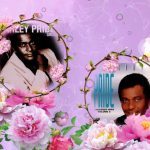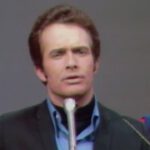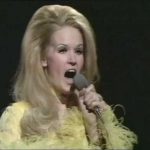Kiss an Angel Good Morning – Charlie Pride (Live)
“Kiss an Angel Good Mornin’” is one of Charley Pride’s most enduring and beloved songs. Written by Ben Peters and released in October 1971 as the lead single from Pride’s album Charley Pride Sings Heart Songs, the track quickly became a landmark hit. It topped the country charts, marking Pride’s eighth No. 1 single, and achieved rare crossover success for a country song at the time—reaching No. 21 on the U.S. Billboard Hot 100 and breaking into the Top 10 on the Adult Contemporary charts. In Canada, it climbed to No. 1 on the country charts, No. 2 on adult contemporary, and No. 31 on the Top Singles list. Internationally, the single also found success in Australia, peaking at No. 7 in Sydney. In 1972, it won the Country Music Association’s Single of the Year and Song of the Year awards, and in 2025, it was selected for preservation by the Library of Congress for its cultural, historical, and aesthetic significance.
The song’s warm, uplifting message resonated deeply with listeners. Its lyrics celebrate the joy of a loving relationship, with the narrator attributing his happiness to starting each day by kissing “an angel good morning” and loving her passionately when she comes home at night. This sentiment, paired with Pride’s smooth, heartfelt delivery, helped the song stand out from some of his earlier, more bittersweet hits. The combination of simple, relatable storytelling and an infectious melody ensured it would remain a staple in his catalog and a favorite among fans for decades.
Beyond its musical charm, “Kiss an Angel Good Mornin’” carried cultural weight. Charley Pride, one of the few Black superstars in country music history, achieved this success during a pivotal time in the genre’s evolution. His achievements helped break barriers and expand the audience for country music, making this song not only a personal milestone but also a meaningful cultural moment. Pride’s producer, Jack Clement, once predicted that these songs would still be heard fifty years later—a prediction that has proven true. Today, the track remains a signature piece in Pride’s legacy, still loved by audiences across generations and remembered for the joy and sincerity it brings.








November 26, 2025 @ 1:21 pm
Love Charlie Pride, a great singer. One of my favorite songs! 😍